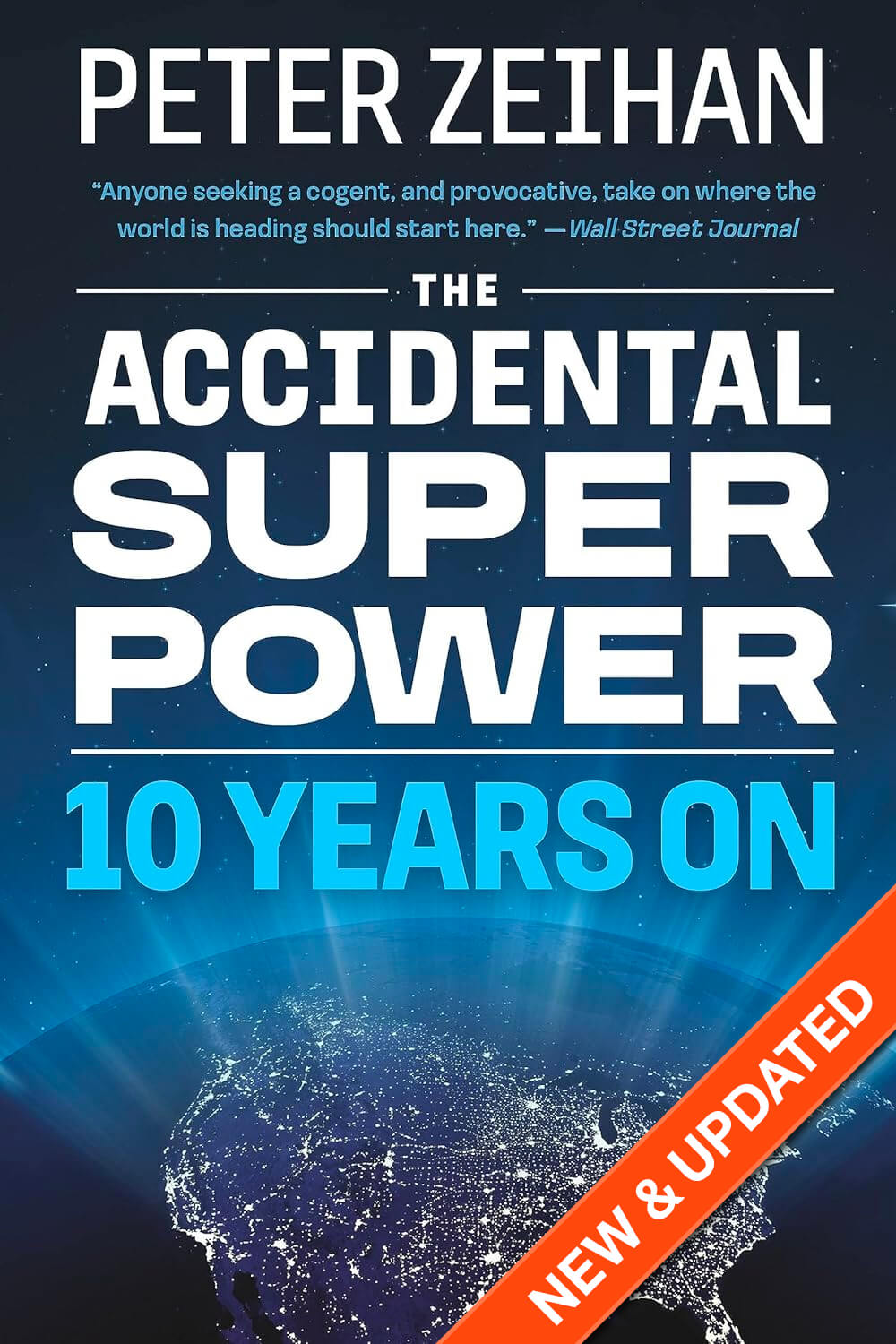FOR MORE ON THE POST-AMERICAN WORLD, SEE DISUNITED NATIONS

The Accidental Superpower: Ten Years On
With a new “10 years later” epilogue for every chapter, comes an eye-opening assessment of American power and deglobalization in the bestselling tradition of The World is Flat and The Next 100 Years.
To kick off our ‘Post-American’ series, we’ll be looking at the Middle East. The best way to break this down is into three chunks: the role of the US as it leaves, the role of regional powers as they rise, and the role extra-regional powers might play.
The US has been bopping around the Middle East for quite a while now, but why were they there? The US didn’t need the oil, but their friends did…so the US stuck around to keep the allies in the game. But with the US now a net oil exporter, American interest in the region writ large has dwindled. Additionally, the US isn’t looking to help China – the region’s primary export customer – grow, so most of what is keeping the US engaged are just those legacy anti-terror fights.
The US exit strategy will play a role in what regional powers step up…the options are a ditch and run, appointing a successor, or crafting a strategic balance of power that the Americans can manipulate from a distance. Once the US is out, Turkey is the one to watch. The only thing that might keep them from leading the Middle East is being too involved in other regions. Saudi Arabia and Iran are the other two players to keep an eye on (and Israel could play a role, too).
The external powers that could play a role here are quite limited. Outside of the US, the only real country that could (and would want to) project power in this area of the world is … Japan. And with the Japanese/American partnership, the US will empower them to do so.
The best part of all this movement and power transition is that the US just doesn’t give a f***.
Here at Zeihan On Geopolitics we select a single charity to sponsor. We have two criteria:
First, we look across the world and use our skill sets to identify where the needs are most acute. Second, we look for an institution with preexisting networks for both materials gathering and aid distribution. That way we know every cent of our donation is not simply going directly to where help is needed most, but our donations serve as a force multiplier for a system already in existence. Then we give what we can.
Today, our chosen charity is a group called Medshare, which provides emergency medical services to communities in need, with a very heavy emphasis on locations facing acute crises. Medshare operates right in the thick of it. Until future notice, every cent we earn from every book we sell in every format through every retailer is going to Medshare’s Ukraine fund.
And then there’s you.
Our newsletters and videologues are not only free, they will always be free. We also will never share your contact information with anyone. All we ask is that if you find one of our releases in any way useful, that you make a donation to Medshare. Over one third of Ukraine’s pre-war population has either been forced from their homes, kidnapped and shipped to Russia, or is trying to survive in occupied lands. This is our way to help who we can. Please, join us.
TranscripT
Forthcoming shortly…







